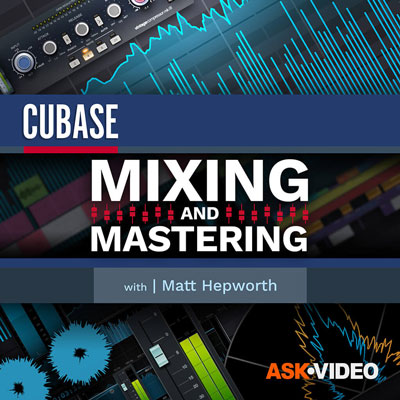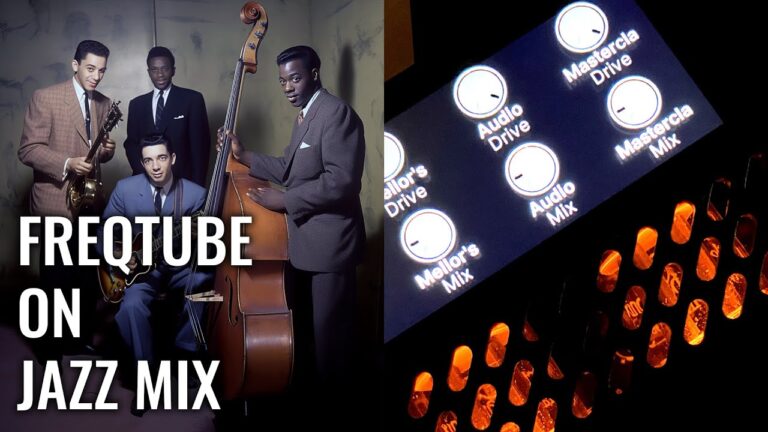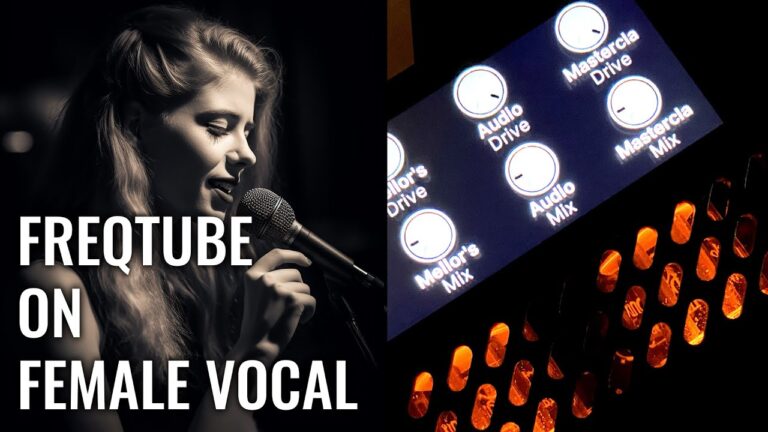This woman nearly gave 'Yesterday' an electronic backing!

Q magazine must have some pretty bad reporters on its staff, because however many times they interview Paul McCartney, they never manage to get all of the information. There's always some new interesting nugget coming out. Or perhaps it's planned that way...
The interesting nugget of information for March 2013 (delayed only by 48 years) is that McCartney gave serious consideration to using an electronic backing on Yesterday, (recorded in 1965) instead of strings.
History has demonstrated that this would almost certainly have been a bad idea. Yesterday is apparently the most-covered song of all time, with more than 2200 cover versions according to Wikipedia. It would be hard to believe that a version with an electronic arrangement would have made the song more successful.
But the idea that the song could have had electronic backing is fascinating.
Synthesizers?
This story has already been widely covered in the media, and almost all versions I have seen say that the backing would have been made using synthesizers. Well I don't think this is quite correct.
McCartney's plan was to work with electronic composer and arranger Delia Derbyshire, of the BBC's Radiophonic Workshop, and apparently he visited her to discuss the project.
The reason I don't think that synthesizers would have been contemplated is that the Radiophonic Workshop only acquired their first synthesizer in 1965. Perhaps it was already available for use at the time of the recording of Yesterday in 1965, but the historical reports I can find don't give sufficient level of precision to confirm this. I would contend however that unless the Radiophonic Workshop immediately went synth-crazy as soon as the synthesizer was delivered, most work would have been accomplished using their existing techniques. And Derbyshire wasn't the only composer at the Radiophonic Workshop - the other composers would surely have been fighting over the new toy.
And...
Who is to say that the BBC would have allowed Derbyshire to use the Radiophonic Workshop for an external project? McCartney is quoted as saying that Derbyshire had a shed that was "full of tape machines and funny instruments", and that, in all probability, is what she would have used.
Music Concrète
What people tend to forget these days is that there is a whole world of electronic music that lies completely outside of the influence of synthesizers, at least synthesizers as we know them today.
The term Musique Concrète is often used, and it is as good an expression as any, meaning music made without using conventional musical instruments. Any sound source can be used and any method of manipulation. Conventional instruments can be used, but would have to be modified considerably by electronic means to fall within the definition.
Which brings me to possibly the most iconic piece of Music Concrète ever created - and created by none other than Delia Derbyshire...
This is the original theme music for Doctor Who. It may sound a bit tame now, but when it was first heard in 1963, for most people it was revolutionary - they just hadn't heard those kinds of sounds before.
And it wasn't made using synthesizers. The year is 1963 and the BBC didn't have any. It was made using the techniques of Music Concrète with oscillators, tape manipulation, and keys being scraped along the strings of an old piano.
The notes, by the way, were composed by Ron Grainer, who was presumably assigned all the royalties. But the extraordinary sound is all from the inventive mind of Delia Derbyshire.
Might have been...
So what could Yesterday have been with an electronic backing by Delia Derbyshire, instead of a string quartet? It might have just weirded people out back in the 1960s, or it could have taken popular music in a whole new direction. We will never know...
Comments on this video
You can comment on this video at YouTube
You can comment on this video at YouTube































@Psistarstormer: God, this show is old! I knew it was around since the 90's, but the 60's?! This has to be the longest running show in history... I imagine that it was a lot creepier back then than it is now...
@ctraver: @mfx1 Agreed as well. Derbyshire was brilliant. Modern electronic musicians can really get by just knowing music, but in her era, you needed to know music and electronics quite well. And have a very, very steady hand with your razor blades.
@mfx1: Agreed with nrXic, Ron Grainer wanted co-composer credit for Delia but BBC red tape prevented it. I wish people would respect Ron's wishes and credit her as well in references to it !
@craig260691: Dr who just isnt scary like it used to be
@AsBf2: This is so psychodelic, I'm in trance now =P
@KarlShookauthor: The theme brings a lot of excitement to the program.
@ste8636: The Floyd were big Dr. Who fans, and if you listen to One of These Days you can hear a bit of a homage to the title theme!
@keyss78: Very psychedelic, sounds much like the early Pink Floyd.
@redsoxclaret: You clearly know your stuff AnthonyUK. I'm impressed.
@OpinionsAnimationStudios: Note to ffcbulldog666: The TARDIS sound effect was created at the (now defunct) BBC Radiophonic Workshop by Dick Mills & Brian Hodgson; By recording the scraping of a door key across piano strings, and then g-r-e-a-t-l-y slowing down the playback..
@naturally.niinii: i love this
@plarkmoby: Doctor Who, best science fiction character EVER.
@ffcbulldog666: Do you happen to know how they generated the Tardis effect?
@BNCA70: nice gravitas this theme, lots of base, not a big fan of the latest one, too many stringed instruments and big orchestra, sounds more like a cartoon starting. Bring back the big thunderous DUM DE DUM!
@emancoy: Im still having a hard time getting the original 60's series in DVD. I got all the new episode. Im such a fan of DR WHO, it was the only show i was watching when my family toured london when I was a kid. there was nothing else on the telly I like to watch when we were there.
@Myles0Harcourt: It's amazing how many arrangements you can get from one great tune!
@derangedband: i have to be in concurrence with your opinion cuz hes just awesome! haha! what a hero :D its be intresting if they met william hartnells doctor in the modern series. get an actor to stand in for him. the guy on the 5 doctors episode was a good portrail of him :P maybe DT doctor can walking on the 1960s tardis XD
@nrXic: Should be mentioned that Delia Derbyshire had more to do with the sound of the theme as she arranged it. She is one of the pioneers of modern day electronic music.
@Donjons: I love Doctor Who !! This music is just brilliant !
@Drelza1: WoW
@BronxBornBroad: An unforgettable melody! The sound of the TARDIS- terrific!!
@Pyro25892: There's not been a lot changed when compared with the new one, it's like a remix.
@cmsahe: I discovered Dr. Who in the 1980s and I was spellbound. This theme makes me fell chills. (of emotion.)
@Wellch: actually I have seen it on TV in America in the mid 1980s.
@sectsmonk: And on BBCA, but I'm not sure of their schedule.
@padresfan36: its only been in US for like 2 years. it comes on the sci fi channel every friday
@GhostLink92: I'm sorry, but I'm new to the Dr. Who series. Is this series really 40 years old? How long has it been in America?
@LBF522: Shame they did not have his face as they would the later Doctors.
@choripanwer: thanks